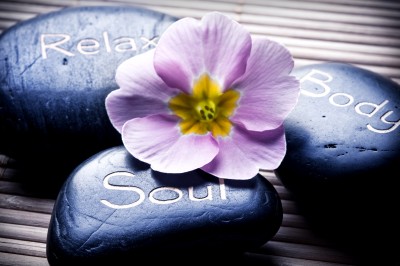 Call it awareness, attention, focus, presence, or vigilance. It’s proving to be a powerful and effective practice in coping with stress. Caregiving can easily top the charts on stress, especially for caregivers of elders with chronic illness and dementia. Mindfulness for caregivers means learning to live in the moment, accept the reality of a situation, and filter out distractions.
Call it awareness, attention, focus, presence, or vigilance. It’s proving to be a powerful and effective practice in coping with stress. Caregiving can easily top the charts on stress, especially for caregivers of elders with chronic illness and dementia. Mindfulness for caregivers means learning to live in the moment, accept the reality of a situation, and filter out distractions.
Mindfulness is not necessarily about a constant state of meditation, or practicing yoga, although these are both proven tools in helping one to better cope with life’s challenges.
We can practice mindfulness by sharpening our focus. In our Compassionate Touch® training, we call this centering. For a caregiver it might be deep breathing or focused meditation before entering the room when an older adult is agitated, confused or combative. Learning to leave your other worries at the door will help to focus on how you can help the person you are caring for. You have, for that moment, stepped into their world. By being engrossed in that person and the present situation, there is a higher probability you will have a heightened sense of empathy and understanding, thus be able to tap into tools that will improve care.
By practicing mindfulness in caregiving, the benefits go far beyond improving care. The stress reduction benefits the caregiver as much or more than the care receiver. When this happens, everyone wins! Like anything else, mindfulness must be practiced. Nothing becomes second nature until it is put into regular use. If deep breathing exercises works, then practice this throughout the day. Journal the difference in how you are able to handle situations. If brief moments of meditation work, try these… but do it every day and many times a day.
Centering ourselves through mindfulness allows us to accept that we are most often not in control, which is often a huge challenge for care partners. We want so much to make our loved ones happy and healthy again, but this is sometimes not possible – certainly not all the time. In a world that is always on full speed, with soaring expectations, sometimes the most valuable gift we can give our loved one is this:
“Smile, breathe and go slowly.” — Thich Nhat Hanh
Pam Brandon is President/Founder of AGE-u-cate® Training Institute. Passionate about creating transformative change for older adults and those that care for them, Pam is honored to work in the field of caregiver education and training and lead the AGE-u-cate team who are changing lives with innovative programs for family and professional caregivers.